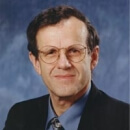
Robert Rosner
Robert Rosner is a theoretical physicist, on the faculty of the University of Chicago since 1987, where he is the William E. Wrather Distinguished Service Professor in the departments of Astronomy & Astrophysics and Physics, as well as in the Enrico Fermi Institute, the Computation Institute, and the Harris School of Public Policy Studies. He served as Argonne National Laboratory’s Chief Scientist and Associate Laboratory Director for Physical, Biological and Computational Sciences (2002-2005), and was Argonne’s Laboratory Director from 2005-2009; he was the founding chair of the U.S. Department of Energy’s National Laboratory Directors’ Council (2007-2009). He was elected to the American Academy of Arts and Sciences in 2001 and to the Norwegian Academy of Science and Letters (as a Foreign Member) in 2004; he is also a Fellow of the American Physical Society. Most of his scientific work has been related to fluid dynamics and plasma physics problems, as well as in applied mathematics and computational physics, especially in the development of modern high-performance computer simulation tools, with a particular interest in complex systems (ranging from astrophysical systems to nuclear fission reactors). Within the past few years, he has been increasingly involved in energy technologies, and in the public policy issues that relate to the development and deployment of various energy production and consumption technologies, including especially nuclear energy, the electrification of transport, and energy use in urban environments. He is the founding co-director of the Energy Policy Institute at Chicago (EPIC), located at the Harris School of Public Policy Studies, the Booth School of Business, and the Economics Department, all at the University of Chicago. He is a member of the American Academy’s Council and serves as co-director of the Academy’s Global Nuclear Future Initiative.